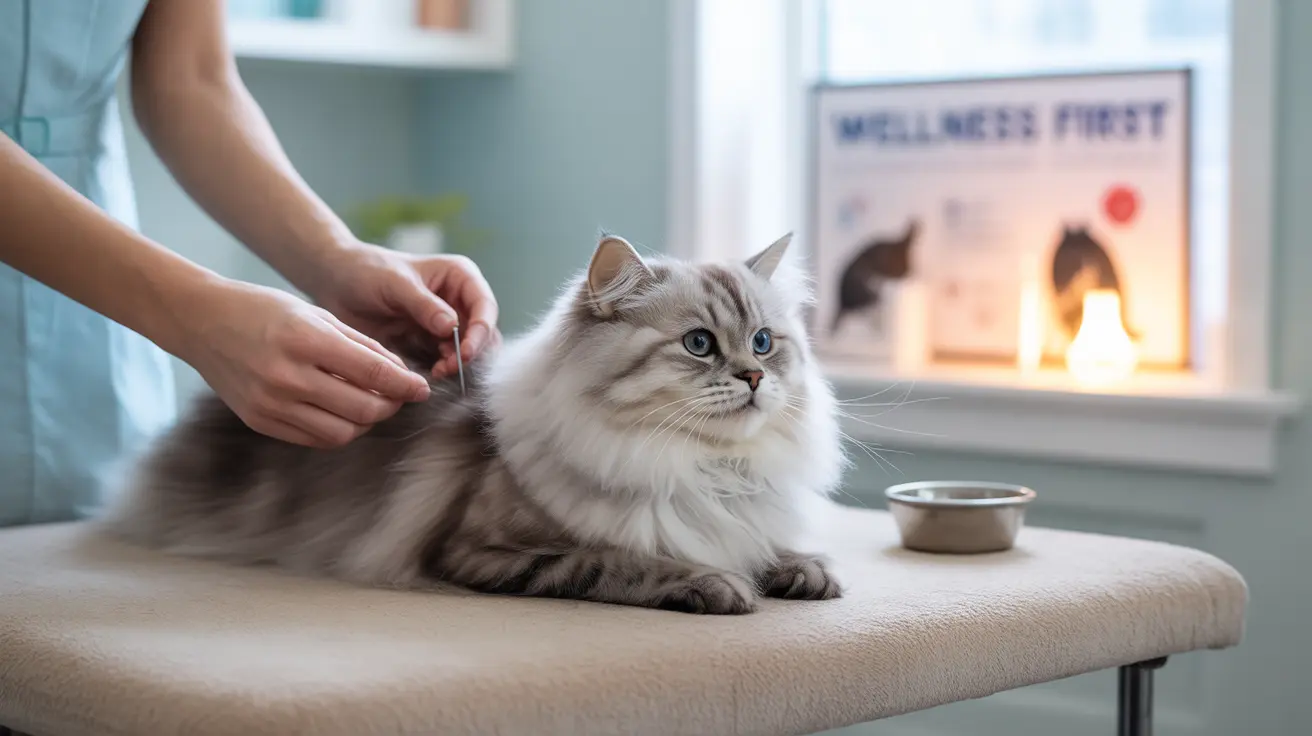As more pet owners seek comprehensive healthcare solutions for their beloved animals, holistic vet medicine has emerged as a powerful approach to pet wellness. This integrative method considers not just the physical symptoms but the entire well-being of your pet - including their emotional, environmental, and spiritual health.
In this comprehensive guide, we'll explore how holistic veterinary medicine can transform your pet's healthcare journey, offering natural solutions while working alongside conventional treatments when necessary.
What Makes Holistic Vet Medicine Different?
Holistic veterinary medicine takes a fundamentally different approach from conventional veterinary care. Rather than simply treating symptoms, holistic practitioners examine the complete picture of your pet's health, including their diet, lifestyle, emotional state, and environment.
This comprehensive approach allows veterinarians to identify and address the root causes of health issues, often preventing future problems before they develop. The focus is on promoting optimal wellness rather than just managing disease.
Core Principles of Holistic Pet Care
The foundation of holistic veterinary medicine rests on several key principles that guide treatment and preventive care:
- Treating the whole animal, not just the symptoms
- Supporting the body's natural healing abilities
- Preventing disease through proactive care
- Minimizing invasive treatments when possible
- Considering environmental and emotional factors
Popular Holistic Treatment Modalities
Holistic veterinarians employ a wide range of therapeutic approaches, often combining different modalities for optimal results:
Acupuncture and Traditional Chinese Medicine
These ancient practices can help with pain management, arthritis, digestive issues, and various chronic conditions.
Herbal Medicine
Natural plant-based remedies can support immune function, reduce inflammation, and address numerous health concerns with fewer side effects than conventional medications.
Nutritional Therapy
Customized dietary plans and supplements can dramatically improve your pet's health, addressing everything from allergies to chronic diseases.
Benefits of Choosing Holistic Care
Holistic veterinary medicine offers numerous advantages for pets and their owners:
- Fewer side effects compared to conventional treatments
- Improved overall quality of life
- Better long-term health outcomes
- Enhanced prevention of future health issues
- Stronger bond between pet and owner through mindful care
Integrating Holistic Care into Your Pet's Routine
Implementing holistic care doesn't require a complete overhaul of your pet's current healthcare routine. Start with these fundamental steps:
- Evaluate your pet's diet and consider natural, whole food options
- Incorporate regular exercise and mental stimulation
- Reduce exposure to environmental toxins
- Consider natural supplements when appropriate
- Work with a qualified holistic veterinarian to develop a comprehensive care plan
Frequently Asked Questions
What is holistic veterinary medicine, and how does it differ from traditional veterinary care?
Holistic veterinary medicine is an approach that considers your pet's entire well-being - physical, emotional, and environmental factors - rather than just treating specific symptoms. Unlike traditional care, which often focuses on treating immediate health issues, holistic medicine emphasizes prevention and treats the root causes of health problems.
How can holistic veterinary medicine help manage chronic illnesses in pets?
Holistic approaches can be particularly effective for chronic conditions by addressing underlying causes, supporting the immune system, and using natural therapies to manage symptoms. This might include dietary changes, acupuncture, herbal remedies, and other complementary treatments that work together to improve overall health.
What types of therapies are commonly used by holistic veterinarians?
Holistic veterinarians typically use a combination of treatments including acupuncture, herbal medicine, chiropractic care, homeopathy, nutritional therapy, and energy healing. These may be used alongside conventional treatments when appropriate.
How can pet owners incorporate holistic principles into their pet's daily care and lifestyle?
Pet owners can start by focusing on natural, whole food diets, regular exercise, stress reduction, and minimal exposure to environmental toxins. Working with a holistic veterinarian can help develop a comprehensive care plan tailored to your pet's specific needs.
What are the benefits of using integrative veterinary medicine, which combines conventional and holistic approaches?
Integrative veterinary medicine offers the best of both worlds by combining proven conventional treatments with natural therapies. This approach can lead to better outcomes, fewer side effects, and more comprehensive care that addresses both immediate health concerns and long-term wellness.
Conclusion
Holistic vet medicine represents a powerful approach to pet healthcare that can significantly improve your animal companion's quality of life. By considering all aspects of your pet's well-being and utilizing natural treatment methods, this comprehensive approach helps create healthier, happier pets while often preventing future health issues.
Whether you're dealing with a specific health condition or simply want to optimize your pet's wellness, considering holistic veterinary care could be a valuable step toward ensuring your pet's long-term health and happiness.






